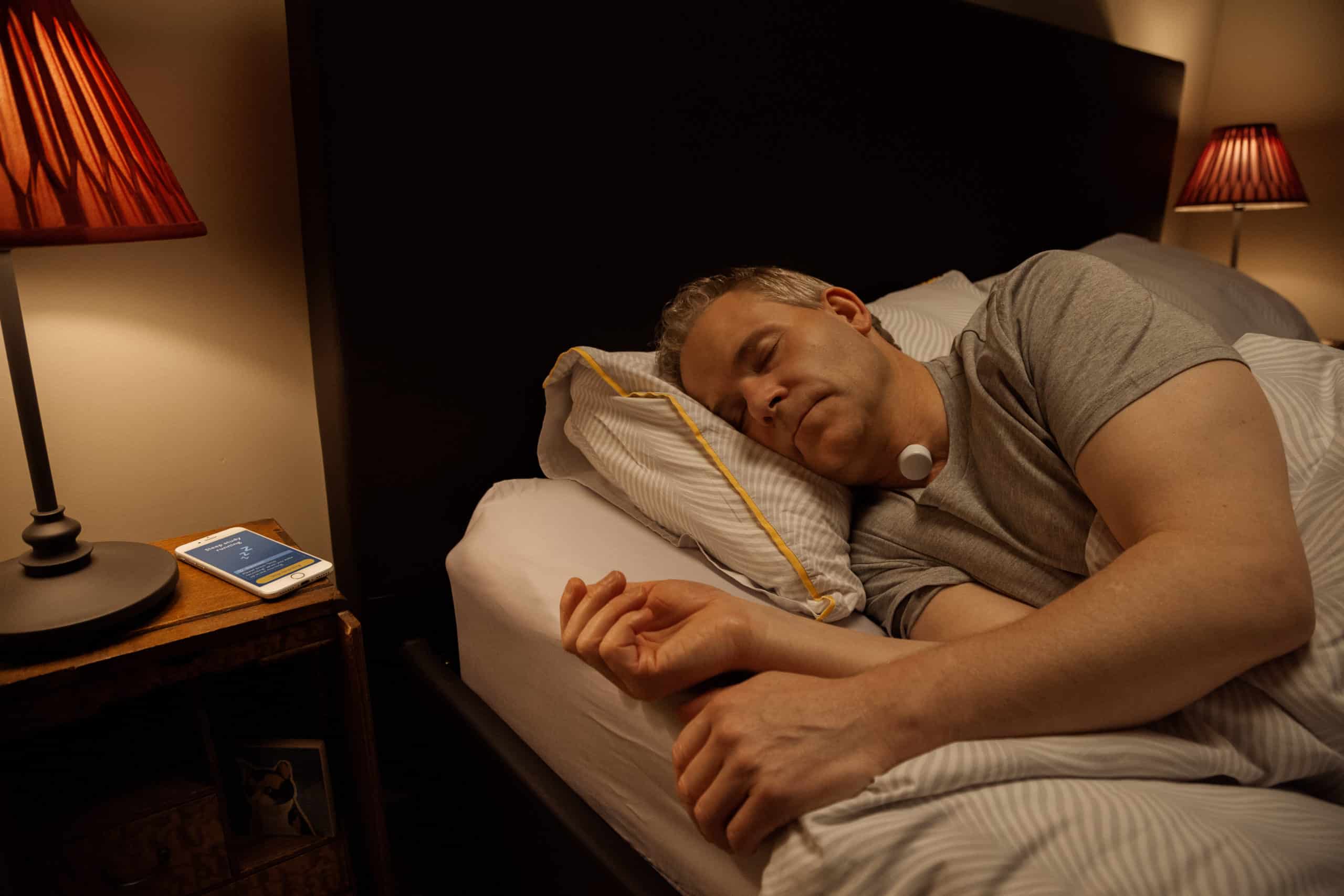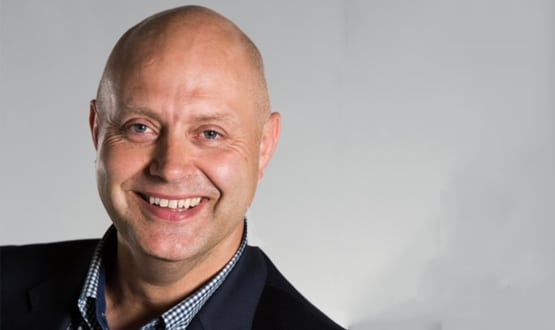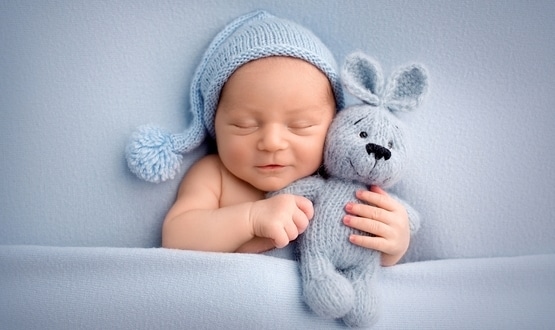NHS-backed Acurable to launch sleep apnoea testing device in the US

Following a successful launch in Europe, London-based medical device company Acurable is aiming to revolutionise sleep apnoea detection for Americans with the launch of its AcuPebble device for Obstructive Sleep Apnoea (OSA) diagnosis in the US.
The extremely patient friendly device, which is already used by the NHS to improve the current time-consuming home sleep apnoea diagnosis method, makes remote and efficient home sleep apnoea testing possible, allowing for earlier detection, faster treatment and better management of this chronic condition.
The AcuPebble device has received a new clearance from the US Food and Drug Administration (FDA), and Acurable plans to launch the device in the US this summer.
OSA affects around 1.5 million adults in the UK and 25 million adults in the US, and causes people to repeatedly stop breathing while asleep. If left untreated, it is associated with serious health conditions, including heart attacks, diabetes and dementia.
Despite its prevalence, an estimated 85% of adults worldwide are undiagnosed and the current testing process is complex and expensive. Currently, patients need to visit a hospital to be trained to use the testing equipment, which involves using a set of uncomfortable wired sensors at home.
Around 10-20% of these sleep tests have to be repeated because sensors get detached or are not placed correctly by the patient. Once the results are available, a specialist needs to spend up to two hours manually interpreting the signals.
A more patient-friendly solution
The AcuPebble device offers a much cheaper, faster, safer, environmentally friendly and patient friendly solution. AcuPebble is the world’s first medical device that is able to extract respiratory biomarkers continuously and accurately, enabling automated diagnosis of OSA.
To use the device, all a patient needs to do is attach the sensor onto the front of their neck before going to sleep. The sensor transfers the signals to a mobile device, which uploads the data to a secure platform. A doctor then receives a report with a diagnosis.
Thanks to the ease of use, no patient training or healthcare professional involvement is needed to explain how to use the device and very few tests have to be repeated (~1%).
This means that sleep testing can be significantly scaled up while saving both clinicians’ and patients’ time. It also decreases infection risks by reducing patients’ need to visit a hospital.
The EU version of the device has been used by the NHS as an established alternative to traditional testing processes for the past two years.
A study conducted at the Royal Free Hospital, a center of excellence in respiratory medicine in the UK, demonstrated the safety and effectiveness of AcuPebble against multi-channel polygraphy (94% positive predictive value, 98% negative predictive value, with positive and negative likelihood ratios over 10 and below 0.1, respectively). In this study 100% of patients completed the test successfully without training or assistance beforehand.
The FDA cleared version of its device is adapted to target the very specific needs of the US healthcare system. This follows their recent €11M Series A funding round, which was joined by KHP Ventures, the first NHS-anchored venture fund in the UK.
The most recent FDA cleared device, AcuPebble Ox100, provides a complete sleep report, and offers a comprehensive set of channels including, amongst others, heart rate and signals, activity, snoring, oxygen saturation, respiratory phases and airflow.
Moreover, the device is very comfortable to wear and allows the patient to have a fully natural, unconstrained, sleep at home. This provides more reliable OSA diagnostic results and facilitates other clinically useful applications such as multi-night testing or monitoring of the evolution of the condition.
This breakthrough patented technology comes after a decade of research by Acurable’s founder, Professor Esther Rodriguez Villegas, at the Wearable Technologies Lab at Imperial College London.
AcuPebble has been recognised as a breakthrough in respiratory medicine, winning some of the most respected awards in the industry. Acurable is predicting it will grow its team by 300% this year as it expands its business in the US.
Rodriguez-Villegas says: “We have already had a lot of interest from US clinicians, who believe it can be transformational for the millions of Americans who have undiagnosed sleep apnoea, putting them at risk of other serious health conditions.
“Yet, accessing a diagnosis and the diagnostic test itself has for too long been uncomfortable and inconvenient for patients, and far too time-consuming for clinicians.
“The AcuPebble device is set to change that, by making it far simpler for patients to get tested and for doctors to access the results, saving billions of dollars in the process.”
Sleep has long been an issue both in the UK and US, with not onl sleep apnoea but simple day to day issues causing insomnia.
The issue of lack of sleep has been looked at in the digital health space for several years, with examples such as the roll-out of the Sleepio app in London in 2019, a cognitive behavioural therapy (CBT) based programme which can be accessed via smartphone or web.




